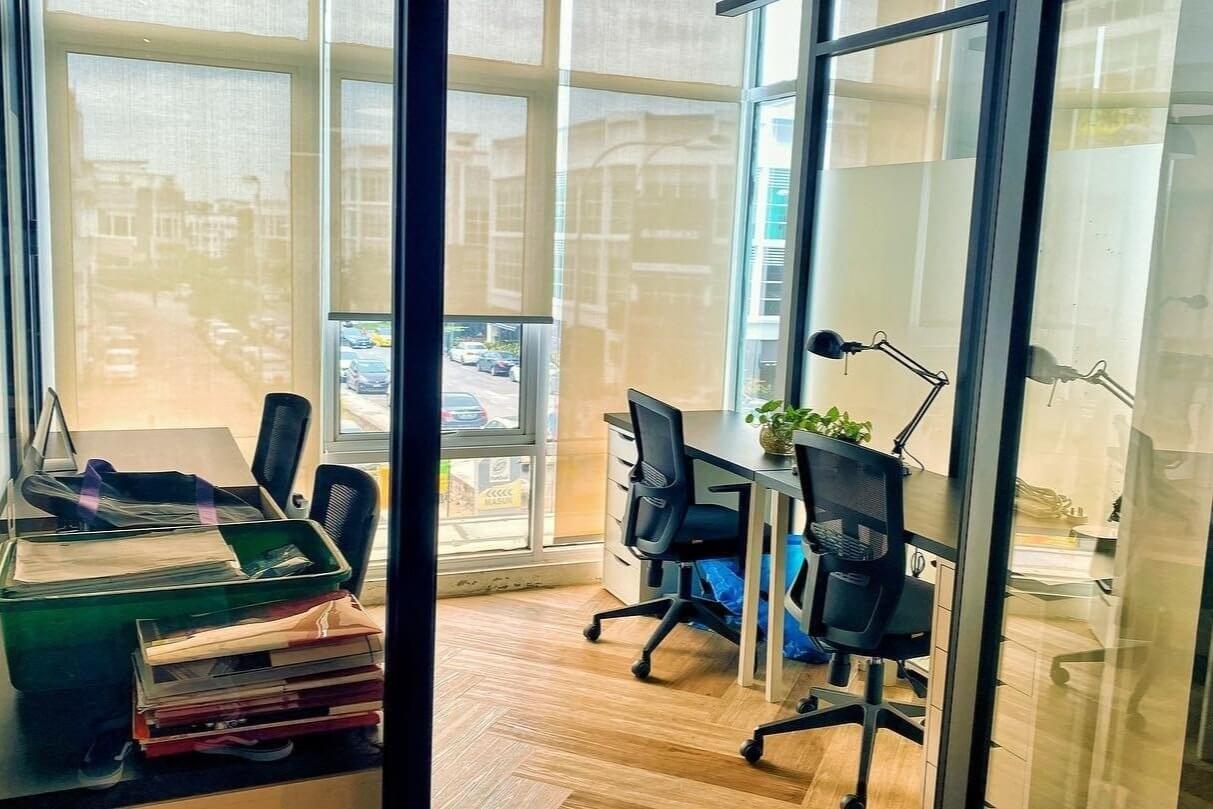The Top 10 Pros and Cons of Renting a Private Office in a Co-Working Space

Renting a Private Office in a Co-Working Space
Introduction

Co-working spaces have become increasingly popular in recent years as a way for freelancers, startups, and small businesses to have a professional work environment without the high cost of renting a traditional office space. One option within a co-working space is to rent a private office, which provides the benefits of a traditional office but with the added community and collaboration of a co-working space.
However, like any decision, there are pros and cons to consider before committing to a private office within a co-working space. In this article, we will explore the top 10 pros and 10 cons of renting a private office in a co-working space.
Pros:
- Cost-effective: Renting a private office in a co-working space can be more cost-effective compared to renting a traditional office space, especially for small businesses or freelancers who may not need a large space. Co-working spaces often offer flexible lease terms and various pricing options, making it easier to find a plan that fits your budget.
- Professional environment: A private office in a co-working space provides a professional environment to work in, which can be important for meetings with clients or for building a professional image. Co-working spaces often offer amenities such as conference rooms, printing services, and high-speed internet, which can enhance the professional atmosphere.
- Collaborative atmosphere: One of the main benefits of co-working spaces is the sense of community and collaboration. Renting a private office in a co-working space allows you to be a part of this community while still having your own private space to work in. This can be especially useful for freelancers or small businesses who may not have a traditional office environment.
- Flexibility: Co-working spaces often offer flexible lease terms and the ability to scale up or down depending on your needs. This can be beneficial for businesses that are growing or experiencing changes in their team size.
- Networking opportunities: Co-working spaces provide a variety of networking opportunities through events, workshops, and the chance to connect with other professionals in the space. Renting a private office allows you to take advantage of these opportunities while still having a private space to work in.
- Amenities: Many co-working spaces offer a variety of amenities such as coffee, snacks, and even fitness facilities. These amenities can be a great perk for your team and can help to enhance the work experience.
- Location: Co-working spaces are often located in prime locations, making them convenient for commuting and meetings with clients. Renting a private office allows you to take advantage of this prime location without the high cost of a traditional office space.
- Productivity: Some people find that the atmosphere of a co-working space can be more productive compared to working from home. The sense of community and the ability to work around other professionals can be motivating and help to boost productivity.
- Flexibility in office design: Many co-working spaces offer the ability to customize your private office space to fit your specific needs and preferences. This can be a great benefit for businesses who want to create a unique office atmosphere.
- Access to resources: Co-working spaces often offer access to resources such as printers, conference rooms, and other office equipment that can be useful for businesses. Renting a private office allows you to take advantage of these resources without the need to purchase them on your own.

Cons:
- Distractions: While the collaborative atmosphere of a co-working space can be beneficial, it can also be a source of distractions. Noise levels and the presence of other people can make it difficult to focus, which can be a drawback for those who need a quiet work environment.
- Limited privacy: While a private office provides more privacy compared to a shared workspace, it may not offer the same level of privacy as a traditional office space. This can be a concern for businesses that handle sensitive or confidential information.
- Shared resources: While access to resources such as printers and conference rooms can be a benefit, they may also be shared with other businesses in the co-working space. This can lead to competition for these resources and potential delays in accessing them.
- Lack of control over the space: Renting a private office in a co-working space means that you do not have complete control over the space and its amenities. This can be frustrating if there are certain changes or additions that you would like to make to the office.
- Limited storage: Private offices in co-working spaces may not have as much storage space compared to a traditional office space. This can be a concern for businesses that have a large amount of physical documents or inventory to store.
- Limited control over who you work with: In a co-working space, you are surrounded by a variety of businesses and professionals. While this can be a benefit for networking and collaboration, it can also mean that you have limited control over who you are working with and may have to share common areas with businesses that may not align with your values or culture.
- Contractual obligations: Renting a private office in a co-working space often comes with certain contractual obligations such as lease terms and rules for use of the space. These obligations can be a burden for businesses that prefer more flexibility in their work environment.

- Lack of ownership: Renting a private office in a co-working space means that you do not have ownership of the space and do not have the option to make permanent changes or renovations. This can be a drawback for businesses that want to create a long-term home for their team.
- Possible downsizing: If your business experiences a downturn or changes in team size, it may be difficult to scale down your private office in a co-working space. This can lead to extra costs and the need to find a new office space.
- Limited long-term stability: Renting a private office in a co-working space may not provide the same level of long-term stability compared to a traditional office space. This can be a concern for businesses that want a more permanent work environment.
Conclusion
Renting a private office in a co-working space can be a cost-effective and flexible solution for businesses and freelancers looking for a professional work environment. However, it is important to consider the pros and cons before making a decision. Some benefits of a private office in a co-working space include the cost-effectiveness, professional environment, and collaborative atmosphere. Some drawbacks include distractions, limited privacy, and shared resources. Ultimately, the decision to rent a private office in a co-working space should be based on the specific needs and goals of your business.




1 Response
[…] that you understand the economics behind affordable shared offices, platforms like Realhub Kenya make it simple to find the right space for your […]